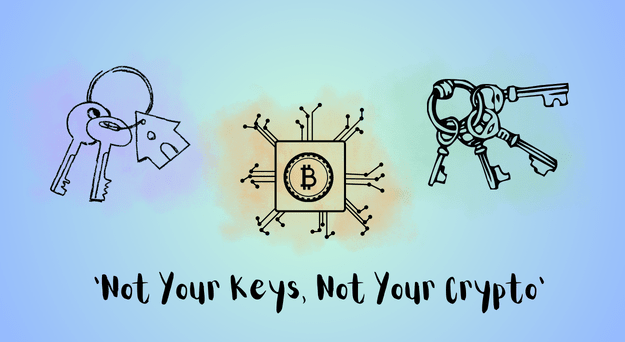Centralized platforms, particularly cryptocurrency exchanges, retain custody of your keys, and consequently, your coins. Despite the appearance of ownership when logging into a crypto exchange, the reality is different, as not all exchanges operate in the same manner. Centralized exchanges use custodial wallets, granting users access but not ownership. The private keys to the crypto assets within the account are not owned by the user but rather by the centralized entity overseeing the platform. This arrangement empowers the platform to take a percentage of any cryptocurrency transaction made. This scenario extends beyond exchanges and applies to any wallet provider that denies users ownership of the associated private keys. Without owning the private keys, users entrust a third party with control over their cryptocurrency funds, allowing them significant influence over the assets in the account.
Self-Custody of Your Private Keys: Why It Matters
Owning your private keys, as opposed to entrusting them to a third party, is crucial for various reasons, primarily centered around maintaining control and security over your digital assets. One significant concern is the risk of accidentally trusting malicious actors with your funds, leading to potential loss without recourse, although this is less likely with established companies.
Furthermore, relying on third-party custody means you surrender control over your money, subjecting it to restrictions and fees imposed by the custodian. Technical issues on their platform can also lock you out of your cryptocurrencies. The absence of private key ownership translates to a lack of financial freedom and dependence on external entities.
Additionally, outsourcing the security of your cryptocurrencies to a platform introduces vulnerabilities, as evidenced by significant hacks over the years resulting in substantial financial losses.
Contrastingly, ownership of your private keys empowers you to set your own rules and enjoy complete control over your digital coins, fostering financial freedom. However, this control comes with the crucial responsibility of ensuring exclusive possession of the private keys to prevent unauthorized access and potential loss of cryptocurrencies.
Not Your Keys, Not Your Coins: Why Ledger Gives You Full Control
Ledger devices are meticulously designed to guide users on the path to financial freedom while ensuring the utmost security for their private keys and cryptocurrencies. These devices go beyond conventional security measures, generating and safeguarding private keys without exposing them to computers or smartphones. This means that even in the event of a PC hack, unauthorized access to valuable crypto assets remains unattainable. Ledger devices employ the Secure Element, the same chip used in passports and bank cards, renowned for its resilience against sophisticated physical attacks.
The assurance of ownership over private keys and, consequently, one’s own coins is a cornerstone of Ledger’s commitment to user peace of mind. The user-friendly yet highly secure Ledger Live software complements this, providing complete control over assets and serving as a centralized platform for managing multiple cryptocurrencies. Ledger Live not only maintains the established security standards but also facilitates cryptocurrency purchases and passive earnings through staking. As Ledger continues to enhance features, it remains a central hub for those entering the cryptocurrency world, ensuring a seamless and secure experience.








Leave A Comment